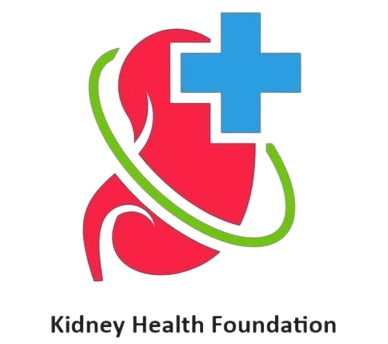
Primary Care
Primary care for kidney health focuses on the early detection, prevention, and management of kidney diseases in a primary care setting. The goal is to identify kidney issues early, provide effective management to prevent progression to more severe kidney disease, and educate patients about lifestyle changes to protect their kidney function. Primary care providers (PCPs) play a crucial role in kidney health, especially for patients with risk factors such as diabetes, hypertension, and obesity, which are the leading causes of chronic kidney disease (CKD).
Key Aspects of Primary Care for Kidney Health:
- Risk Assessment and Early Detection:
- Identify High-Risk Populations: Primary care physicians routinely identify patients who are at high risk for kidney disease, including those with:
- Diabetes (Type 1 and Type 2)
- Hypertension (High blood pressure)
- Family history of kidney disease
- Obesity
- Cardiovascular diseases (as they often coexist with kidney disease)
- Older adults (who are at higher risk due to aging kidneys)
- Smokers and individuals with a high-protein diet
- Regular Screening:
- Urine Tests: A key screening tool is the urinalysis, specifically looking for protein in the urine (proteinuria), which is an early indicator of kidney dysfunction. Microalbuminuria (small amounts of protein in the urine) is an important marker in patients with diabetes or hypertension.
- Blood Tests: Serum creatinine is measured to estimate kidney function using the estimated glomerular filtration rate (eGFR). An eGFR below 60 mL/min/1.73m² over three months indicates CKD.
- Blood Pressure Measurement: Blood pressure should be monitored regularly, as uncontrolled hypertension can lead to kidney damage.
- Identify High-Risk Populations: Primary care physicians routinely identify patients who are at high risk for kidney disease, including those with:
- Management of Risk Factors:
- Control Diabetes: Diabetes is the leading cause of kidney disease. Tight control of blood sugar is essential to prevent diabetic kidney disease (diabetic nephropathy).
- Regular HbA1c testing and appropriate medication (such as insulin or oral hypoglycemics) are crucial.
- If a patient has proteinuria, medications like ACE inhibitors or ARBs can help protect the kidneys.
- Control Hypertension: Managing blood pressure is critical in preventing kidney damage. Primary care providers use:
- First-line medications: ACE inhibitors, ARBs, calcium channel blockers, and diuretics are commonly prescribed.
- Target Blood Pressure: The goal is usually to maintain a blood pressure of less than 130/80 mmHg for CKD patients, especially those with proteinuria.
- Lifestyle Modifications:
- Diet: Encourage a heart-healthy and kidney-friendly diet, typically low in sodium, moderate in protein, and rich in fruits, vegetables, and healthy fats.
- Exercise: Regular physical activity helps control weight, blood pressure, and diabetes.
- Smoking Cessation: Smoking accelerates kidney damage, so cessation is essential.
- Weight Management: Achieving and maintaining a healthy weight can reduce the risk of kidney disease, especially in patients with diabetes or hypertension.
- Control Diabetes: Diabetes is the leading cause of kidney disease. Tight control of blood sugar is essential to prevent diabetic kidney disease (diabetic nephropathy).
- Prevention of Acute Kidney Injury (AKI):
- Medication Management: Primary care providers should be vigilant about nephrotoxic drugs, such as nonsteroidal anti-inflammatory drugs (NSAIDs), certain antibiotics, and some blood pressure medications (e.g., ACE inhibitors, ARBs, diuretics), which can increase the risk of kidney injury.
- Hydration: Ensure that patients are well-hydrated, especially in those at risk for dehydration, such as the elderly or those on diuretics.
- Monitoring during Illness: For patients with comorbidities like diabetes or hypertension, it’s crucial to monitor kidney function during acute illnesses (e.g., infections, dehydration) to prevent AKI.
- Early Intervention and Referral:
- Referral to Nephrologist: If a patient has progressive CKD (e.g., eGFR <30 mL/min/1.73m²) or persistent proteinuria despite treatment, referral to a nephrologist is essential for further evaluation and management. Early nephrology referral can slow disease progression and improve outcomes.
- Monitoring for CKD Complications:
- Anemia: Anemia is common in CKD due to reduced erythropoietin production by the kidneys. Primary care providers should monitor hemoglobin levels and may initiate treatment with erythropoiesis-stimulating agents (ESAs) or iron supplements if needed.
- Bone Mineral Disorder: CKD can lead to mineral and bone disorders, so monitoring calcium, phosphorus, and vitamin D levels is necessary, especially in advanced CKD.
- Electrolyte Imbalances: CKD can lead to imbalances in potassium, sodium, and acid-base status. Regular monitoring and management of these imbalances are essential.
- Patient Education and Support:
- Disease Education: Educate patients about the nature of CKD, its progression, and the importance of adhering to treatment regimens.
- Dietary Advice: Referral to a dietitian for personalized dietary advice may be helpful, especially for patients with advanced kidney disease who need to limit protein, potassium, or phosphorus intake.
- Understanding Dialysis and Transplantation: For patients with advanced CKD, the primary care provider plays a role in discussing treatment options such as dialysis and kidney transplantation and referring them to nephrologists for further management.
- Support Networks: Support groups or community resources can be valuable in helping patients cope with the emotional and psychological aspects of living with kidney disease.
- Monitoring and Long-Term Care:
- Regular Monitoring: Patients with CKD or at high risk of kidney disease should have regular follow-ups with their primary care provider to monitor kidney function, blood pressure, and other relevant health markers.
- Annual Tests: For at-risk populations (e.g., diabetics, hypertensives), annual monitoring of eGFR and urine albumin-to-creatinine ratio (ACR) is recommended to detect early signs of kidney damage.
- Vaccination: Encourage vaccinations, especially the influenza vaccine and pneumococcal vaccine, as kidney disease patients are at increased risk for infections, which can further harm kidney function.
Kidney Disease Staging (for Primary Care Context):
Kidney disease is typically staged based on eGFR and the level of proteinuria (albuminuria). Here is a general outline of the stages:
- Stage 1 (eGFR ≥ 90 mL/min/1.73m²): Normal kidney function but with signs of kidney damage (e.g., proteinuria).
- Stage 2 (eGFR 60-89 mL/min/1.73m²): Mild reduction in kidney function with kidney damage.
- Stage 3 (eGFR 30-59 mL/min/1.73m²): Moderate reduction in kidney function. This stage requires regular monitoring and management.
- Stage 4 (eGFR 15-29 mL/min/1.73m²): Severe reduction in kidney function. Referral to a nephrologist is important for planning dialysis or kidney transplantation.
- Stage 5 (eGFR < 15 mL/min/1.73m²): End-stage kidney disease (ESKD), where kidney function is minimal or absent. Dialysis or a kidney transplant is required.
Conclusion:
Primary care for kidney health is centered around prevention, early detection, and effective management of kidney diseases, particularly chronic kidney disease. Primary care providers are critical in managing modifiable risk factors, such as diabetes, hypertension, and obesity, to prevent or delay kidney damage. Early referral to a nephrologist, when appropriate, and patient education on lifestyle modifications, medication adherence, and disease management, play key roles in improving kidney health outcomes. With proper care and regular monitoring, many kidney-related complications can be prevented or minimized.
Meet Our Doctors

Dr. Abdullah Al Mamun
MBBS, MD ( Pediatric Nephrology) MRCPS (Glasg, UK) ISPD Fellow (Bangalore, India)Paediatric Nephrology
Make an Appointment

Dr. Kaosary Khan Kakon
MBBS (DU), BCS (Health) MD in Pediatric Nephrology (BSMMU)Paediatric Nephrology
Make an Appointment
Dr. Md. Abid Hossain
MBBS, FCPS (Surgery), MS (Urology), FRCS (Ireland), FRCS (Glasgow)Urology
Make an Appointment
Dr. Syed Saimul Huque
MBBS, MD (Paed. Neph.) Clinical Fellow (Paed. Nephrology) National University Hospital, SingaporePaediatric Nephrology
Make an Appointment
Fahmida Karim
B.Sc (Hon's), M.Sc. M. Phil. (Nutrition), INFS (DU) PGT, Renal Nutrition (Malaysia)Nutritionist
Make an Appointment
Prof. Dr. Md. Zahangir Kabir
MBBS,FCPS (Medicine), FCW (Kidney-UK.)Medicine and Kidney Disease
Make an Appointment
Prof. Dr. Mohammed Hanif
MBBS, FCPS, FRCP, Higher Training in Peadiatric NephrologyPaediatrician
Make an Appointment
Professor Dr. Golam Muin Uddin
MBBS, FCPS(Paediatrics), FRCP(Edin,UK), Fellow Paediatric Nephrology, New Children Hospital, Sydney, Australia. Gold Medalist for Health and Humenaterian Service. (Mother Terasa Gold Medal 2017)Paediatric Nephrology
Make an Appointment




